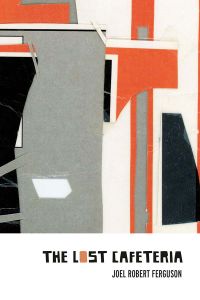Lost Cafeteria, The
Éditeur : Signature Editions
ISBN numérique ePub: 9781773241067
Parution : 2022
Catégorisation :
Livres numériques /
Autre /
Autre /
Autre.
Formats disponibles
| Format | Qté. disp. | Prix* | Commander |
|---|---|---|---|
| Numérique ePub Protection filigrane*** |
Illimité | Prix : 9,99 $ |
*Les prix sont en dollars canadien. Taxes et frais de livraison en sus.
***Ce produit est protégé en vertu des droits d'auteurs.
Description
Taking cues from the 20th century life writing of Robin Blaser, Frank O'Hara, William Everson, Sylvia Plath and Alden Nowlan, The Lost Cafeteria is a stylistically shapeshifting bildungsroman in verse set between the author's evangelical upbringing and peripatetic adulthood. Exploring the shape of the ""I-within-history,"" Ferguson mixes confessional lyric poetry with experimental détournements of advertising and human resources ideolects to visit (and revisit) themes of labour, family (biological and chosen), class, travel, religion, and the meanings of the word 'home.'
The Lost Cafeteria traces the poet's development through ""the first-world hinterlands"" of Canada not in temporal but spatial terms, circling both the quotidian and singular events of a life. From the fruit orchards of interior British Columbia to social housing high-rises in downtown Winnipeg, from the expanses of the world's megacities to the parochialisms of a small-town, post-industrial childhood to the history-laden fieldscapes of Merry Olde England, Joel Robert Ferguson's debut collection of poems asks, ""is it possible to separate nostalgia from regression?""
Joel Robert Ferguson grew up in a family of working-class evangelical Baptists in the Maritimes and found an escape from that parochial world in literature. In his twenties, that escape became literal, as he hitchhiked across the country, working odd jobs. These experiences are reflected in his first poetry collection The Lost Cafeteria.
The idea of place and transience forms the core around which the poems in this collection orbit. Stylistically, the poems vary, but often strive for a synthesis between experimental and traditional. Ferguson’s sonically dense political poems and elegies confront the ways in which working-class masculinity is used by capitalism and white supremacism.























